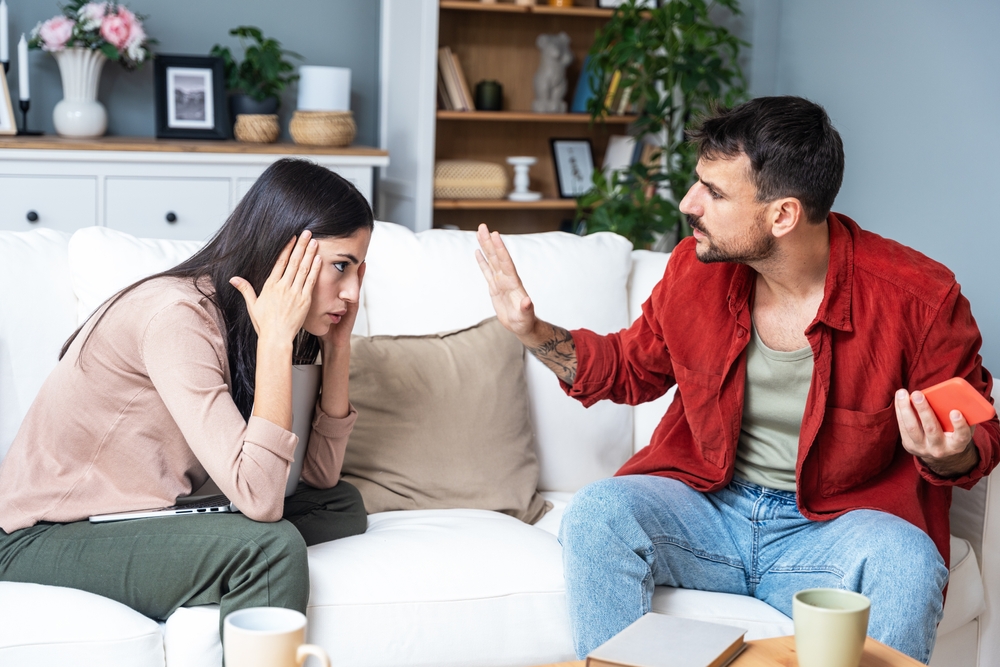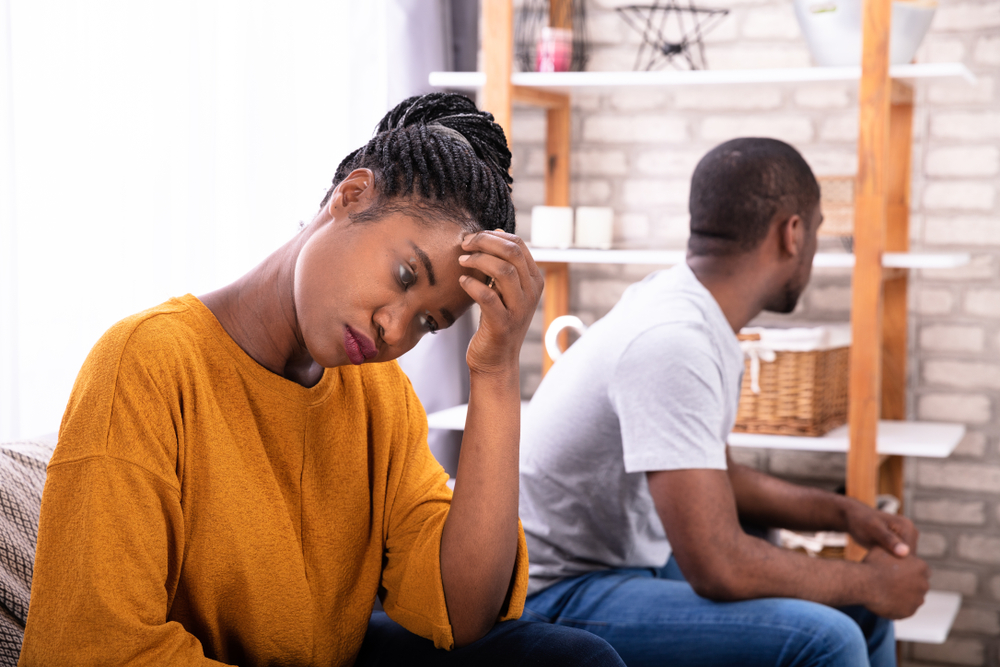Do you love being alone? If you’re nodding your head “yes,” then there’s a chance it could be affecting your relationships. Independence is amazing and a healthy part of self-care, but sometimes, being too independent can cause friction with partners. Here are 15 signs that your desire to be solo is messing up your relationships.
1. You look for reasons to end the relationship.

Even if things are going generally well in your partnership, you’re often looking for reasons to leave. Why? Because you equate being in a relationship to a loss of independence. You feel suffocated and like you can’t breathe so you feel the only viable option is to ditch. If you have the urge to split, then you might be too independent (or avoidant, according to Evergreen Psychotherapy Center) to be in a relationship.
2. You refuse your partner’s help.

You take pride in the fact that you don’t need anyone. That means that even when you’re in a relationship and your partner wants to help you work through a family issue or solve a work problem, you outright decline. That’s because accepting help would mean that you’re not as independent as you claim to be. But here’s the thing: relationships are all about giving and receiving help, so if you can’t do that, it’s a sign you’re too independent to be with someone.
3. You have a hard time expressing yourself.

You want to let your walls down, you really do but it’s hard for you to know the right way to express yourself. For example, saying things like, “I love you” feels like concrete in your chest. This could be for a few reasons: maybe you developed coping mechanisms in childhood that taught you that guarding yourself was a way to maintain a sense of control. You also may fear vulnerability and think sharing your thoughts will only bring criticism or rejection. This makes you enter relationships with a lack of trust and a lot of independence.
4. You make up excuses to leave places.

Let’s say you’re at a party with your partner’s friends when you’d much rather be at home snuggled in your robe watching your comfort movie. We wouldn’t put it past you to devise a plan to get out—whether that’s claiming you’re not feeling well, you have to get up early tomorrow, or something else, when you’re done you are DONE. That’s a hallmark of independence.
5. You complain about your partner being too needy.

Going off of the last example, let’s say the morning after the party your partner approaches you and says something like, “You don’t spend enough time with my friends.” Your immediate reaction might be that your partner is being too clingy or needy. Whether you say that to them or not, you feel that being dragged to social events that you don’t care about is unfair and unnecessary.
6. You don’t like to compromise.

If you subscribe to the “my way or the highway” mentality, then you just might be too independent for your relationships. Whether your partner wants to switch up your nightly Netflix binge or suggests taking a spontaneous weekend trip, you like your routine and you pretty much won’t budge on anything that doesn’t look like it.
7. You idealize unavailable people.

Whether you’re in a relationship or not, you often look at people like emotionally immature exes or your married co-workers and think, “I want that.” That’s because these types of people mirror your own emotional unavailability—they’re just not going to give you the intimacy and vulnerability that makes relationships successful. It’s perfect because you don’t want that anyway and it allows you to maintain a safe emotional distance.
8. You neglect your partner’s needs.

Here’s the deal: you prioritize solo activities and hobbies over nurturing your relationship. To you, it’s just a way for you to maintain your sense of control and independence. But to your partner? They feel like their emotional and physical needs are being neglected. Because you’re so content with being alone, it may be hard for you to fully grasp your partner’s needs for connection.
9. Your intimacy with your partner often suffers.

You already have a hard time being emotionally close to partners so it makes sense that physical intimacy would be difficult, too. Whether it’s cuddling, hugging, or sexual, any type of intimate action makes you feel suffocated. You like to keep the gushy stuff to a minimum and intimacy certainly doesn’t support that desire.
10. You won’t adjust your schedule.

When you’re independent, it’s common to have a schedule jam-packed with all of the things you like doing alone. Pottery, dance classes, solo dinner dates, it doesn’t matter what activity it is, you certainly don’t want to give it up. This can be a problem in relationships—it can make partners feel like they don’t fit into your priorities and don’t really care for them (even if you do).
11. You don’t trust your partners.
 provided by Shutterstock
provided by Shutterstock
You’re so used to doing things yourself that you like them done in a certain way. We totally get that! But when your partner tries to help with things like folding the laundry or cleaning the kitchen it’s difficult to let them fly free. You believe that they won’t do it properly so you just might as well do it yourself. It seems harmless, but this can make partners feel like you don’t trust them and like they can’t do anything right.
12. You tend to be stubborn.

When you’re used to being alone, you rely on yourself. You take your autonomy to make your own choices seriously and considering other people’s opinions isn’t an option. It’s great that you trust your own judgment and abilities (the confidence!) but this can lead to an unwillingness to change your mind and see other POVs, especially in a relationship.
13. You don’t like sharing a space.

According to the Williamsburg Therapy Group, in addition to emotionally sharing yourself, independent people also have a difficult time sharing when it comes to your space. Maybe your partner is sitting just a little too close to you on the couch or they take up the entire bed by starfishing—whatever they do, you don’t like it. You’d much rather be in your own space by yourself where no one else can cramp your style. If that’s how you feel, then that’s a signifier you maybe shouldn’t be in a relationship.
14. You flee when things get hard.

If you get into an argument with your partner, your first instinct is to leave. You need to distance yourself and be on your own in order to think clearly. Taking space to decompress and process is normal and healthy, but you take it to an extreme. Whether that’s not answering your S.O.’s calls or turning your phone off completely, you don’t like conflict and you avoid it at all costs.
15. You don’t want to engage in shared activities.

You can recall many times when partners have brought up the idea of doing a shared activity together, like pottery, cooking classes, or volunteering. Sure, it’s a nice idea but you can’t think of anything less interesting to you. As we said, you’d much rather pursue your solo hobbies, and even though shared activities would make your partner happy, you can’t get yourself to do it.






